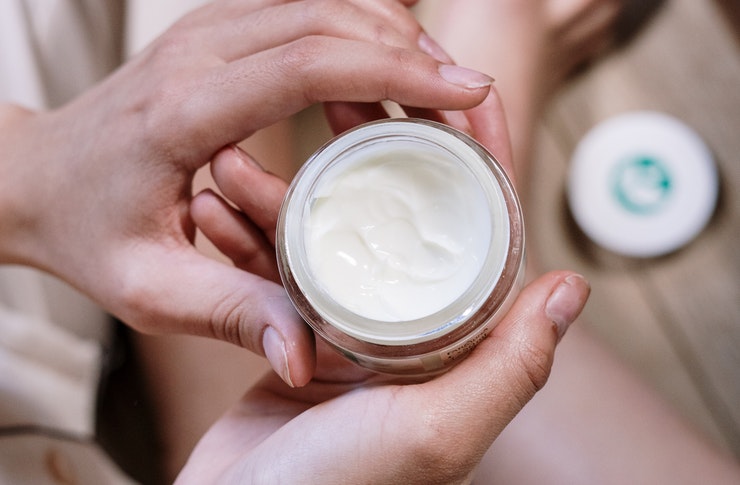Best Over the Counter Eczema Creams: What Works?
Eczema creams in 2025 are formulated to help soothe dry, itchy, or irritated skin caused by eczema and related conditions. From prescription-strength treatments to gentle over-the-counter moisturizers, these products may support hydration and comfort when used as part of a dermatologist-approved care plan. Understanding the different types, ingredients, and usage recommendations can help individuals manage symptoms more effectively. This information is for educational purposes only and does not replace professional medical advice.

Eczema affects millions of people worldwide, causing uncomfortable symptoms that range from mild dryness to severe inflammation. While prescription treatments exist, many individuals find effective relief through over-the-counter options that target specific symptoms and skin needs. Knowing what ingredients to look for and how different formulations work can help you make informed decisions about managing this chronic condition.
Overview of Eczema and Skin Irritation
Eczema, also known as atopic dermatitis, is a condition that causes the skin to become inflamed, itchy, and irritated. It occurs when the skin barrier becomes compromised, allowing moisture to escape and irritants to penetrate more easily. Common triggers include environmental factors, allergens, stress, and certain fabrics or chemicals. Symptoms typically include red or brownish patches, intense itching, dry and sensitive skin, and sometimes small raised bumps that may leak fluid when scratched. The condition can appear anywhere on the body but commonly affects the hands, feet, ankles, wrists, neck, upper chest, eyelids, and the insides of elbows and knees. Understanding your specific triggers and skin type is essential for selecting the most appropriate treatment approach.
Types of Eczema Creams and Treatments
Over-the-counter eczema treatments fall into several categories, each designed to address different aspects of the condition. Emollients and moisturizers form the foundation of eczema care, helping to restore and maintain the skin barrier. These products range from lightweight lotions to thick ointments, with ointments generally providing the most intensive hydration. Hydrocortisone creams contain low-dose corticosteroids that reduce inflammation and itching, available in concentrations up to one percent without a prescription. Colloidal oatmeal products soothe irritated skin and provide anti-inflammatory benefits. Ceramide-containing creams help repair the skin barrier by replacing lipids that are often deficient in eczema-prone skin. Anti-itch formulations may include ingredients like pramoxine or menthol to provide temporary relief from scratching urges. Some newer products contain ingredients like shea butter, glycerin, or hyaluronic acid, which work to attract and retain moisture in the skin.
Benefits of Moisturizing and Medicated Options
Regular moisturizing is crucial for managing eczema, as it helps prevent flare-ups and reduces the severity of symptoms. Applying moisturizer immediately after bathing, when skin is still damp, maximizes hydration by trapping water in the skin. Consistent use of emollients can reduce the need for stronger medicated treatments and improve overall skin health. Medicated options like hydrocortisone creams offer additional benefits by directly targeting inflammation. These products work quickly to reduce redness, swelling, and itching during active flare-ups. Combination approaches that include both regular moisturizing and occasional use of medicated creams often provide the best results. Some products combine multiple beneficial ingredients, offering both barrier repair and anti-inflammatory effects in a single formulation. The key is finding a routine that maintains skin hydration while addressing acute symptoms when they occur.
Potential Risks and Sensitivities
While over-the-counter eczema creams are generally safe, some individuals may experience adverse reactions or sensitivities. Fragrances and preservatives in skincare products can trigger allergic reactions or worsen eczema symptoms in some people. Even hydrocortisone creams, when used excessively or for prolonged periods, can cause skin thinning, stretch marks, or other side effects. Patch testing new products on a small area of skin before full application can help identify potential irritants. People with eczema often have sensitive skin that reacts to ingredients that others tolerate well, making it important to read labels carefully. Common irritants to avoid include alcohol, certain essential oils, and harsh surfactants. If a product causes increased redness, burning, or worsening symptoms, discontinue use immediately. Some individuals may also develop contact dermatitis from ingredients in topical treatments, which can complicate eczema management.
Comparing Common Over-the-Counter Products
When selecting an eczema cream, understanding the available options and their typical price ranges can help guide your decision. Below is a comparison of common over-the-counter product categories:
| Product Type | Common Brands | Key Features | Cost Estimation |
|---|---|---|---|
| Basic Moisturizers | CeraVe, Cetaphil, Eucerin | Fragrance-free, ceramides, daily use | $10-$20 per 16 oz |
| Hydrocortisone Creams | Cortizone-10, Aveeno 1% Hydrocortisone | Anti-inflammatory, itch relief | $6-$15 per tube |
| Colloidal Oatmeal | Aveeno Eczema Therapy, Gold Bond | Soothing, natural ingredients | $8-$18 per container |
| Intensive Repair Ointments | Aquaphor, Vaseline | Thick barrier protection, severe dryness | $7-$16 per jar |
| Specialty Formulas | Vanicream, La Roche-Posay | Hypoallergenic, minimal ingredients | $12-$25 per product |
Prices, rates, or cost estimates mentioned in this article are based on the latest available information but may change over time. Independent research is advised before making financial decisions.
Dermatologist Guidance and Skin Care Tips in 2025
Dermatologists emphasize that successful eczema management requires a comprehensive approach beyond just applying creams. Establishing a gentle skincare routine is fundamental, including using lukewarm water for bathing, limiting shower time to 10-15 minutes, and avoiding harsh soaps. Pat skin dry rather than rubbing, and apply moisturizer within three minutes of bathing to lock in moisture. Identifying and avoiding personal triggers, whether environmental, dietary, or stress-related, can significantly reduce flare-up frequency. Wearing soft, breathable fabrics like cotton and avoiding wool or synthetic materials that may irritate skin is also recommended. Keep fingernails short to minimize skin damage from scratching, and consider wearing cotton gloves at night if nighttime scratching is an issue. Current guidance in 2025 emphasizes the importance of consistent barrier repair through regular moisturizing, even when symptoms are not present. If over-the-counter treatments do not provide adequate relief after several weeks of consistent use, or if symptoms worsen, consulting a dermatologist for prescription-strength options or further evaluation is advisable.
Managing eczema effectively requires understanding your skin’s specific needs and finding the right combination of products and practices. Over-the-counter creams offer accessible, effective options for many people, particularly when used as part of a comprehensive skincare routine. By selecting appropriate products, avoiding known irritants, and maintaining consistent skin barrier care, most individuals can achieve significant symptom relief and improved quality of life.
This article is for informational purposes only and should not be considered medical advice. Please consult a qualified healthcare professional for personalized guidance and treatment.




